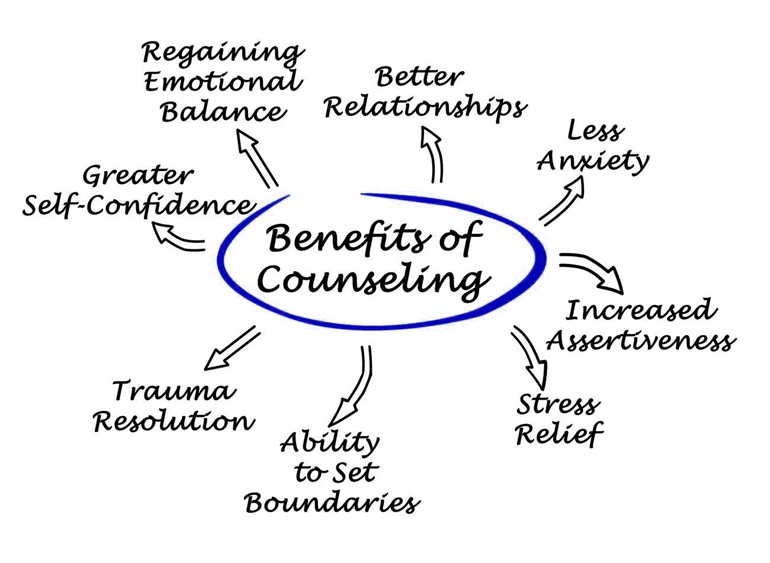Understanding the Significance of Mental Therapy for Teen Advancement and Health And Wellness
Psychological therapy plays an important role in the development and health of teenagers. It addresses a variety of psychological health and wellness issues that can hinder their growth. Via therapy, adolescents can find out important coping approaches and improve their emotional intelligence. This procedure cultivates strength, permitting them to better browse life's challenges. However, several still hesitate to participate in conversations about mental health and wellness. Discovering the reasons behind this unwillingness exposes deeper insights right into the adolescent experience.
The Influence of Teenager Mental Health And Wellness on Overall Advancement
The interaction in between teenage psychological health and overall advancement is extensive and complex. Throughout the essential stage of teenage years, individuals undergo considerable physical, psychological, and social changes that shape their identity and future. Psychological health plays a crucial role in this procedure, affecting academic efficiency, partnerships, and self-esteem. Positive mental wellness fosters durability and flexibility, allowing teens to browse difficulties efficiently. Conversely, psychological wellness concerns can impair cognitive functions, disrupt social communications, and impede psychological policy, leading to a cascade of developing setbacks.
The atmosphere in which teens expand-- incorporating household dynamics, peer influences, and social assumptions-- interacts with their psychological wellness, additional complicating their developmental trajectory. Understanding the relevance of mental wellness in this phase is essential for advertising healthy and balanced development and guaranteeing that adolescents can thrive, both throughout their formative years and past. Prioritizing mental health support can considerably enhance their general growth and future potential.
Common Mental Wellness Issues Encountered by Teenagers
While maneuvering with the intricacies of adolescence, several teenagers experience an array of mental wellness issues that can considerably affect their lives. Stress and anxiety conditions are common, commonly identified by extreme concern or anxiety that disrupts day-to-day tasks. Clinical depression is an additional common issue, manifesting as relentless unhappiness, loss of interest, and difficulty in operating. Furthermore, behavioral issues, such as oppositional defiant disorder, can bring about problems with authority numbers and a struggle to comply with societal standards. Eating problems, including anorexia nervosa and bulimia, may develop as young adults grapple with body photo and social pressures. Substance misuse can establish as a misguided effort to deal with emotional distress. These psychological health and wellness challenges, if unaddressed, can hinder scholastic efficiency and interpersonal connections, emphasizing the need for recognition and support within this vulnerable age.
The Role of Treatment in Structure Coping Methods
Treatment plays a significant duty in gearing up young adults with efficient coping techniques to browse their mental health and wellness difficulties. Via structured sessions, therapists assist adolescents identify and understand their feelings, cultivating self-awareness. By utilizing different strategies such as cognitive-behavioral therapy, teens learn to test adverse thought patterns and change them with positive ones. This procedure enables them to create much healthier actions to stress factors.
Additionally, therapy provides a safe atmosphere for teenagers to exercise these strategies, facilitating the change from theory to real-life application. Role-playing and scenario analysis enable them to rehearse coping devices in a supportive space. As teens face special stress-- scholastic needs, social characteristics, and identification exploration-- having individualized coping approaches becomes important. Ultimately, therapy not only addresses immediate problems however likewise imparts long-lasting skills that allow teenagers to take care of future challenges, advertising general psychological well-being this article and strength in their growth.
Promoting Strength and Psychological Knowledge Through Therapy
Just how can treatment support strength and emotional knowledge in teens? Treatment supplies a risk-free atmosphere where teenagers can explore their thoughts, feelings, and actions. Via led conversations and tasks, therapists help teenagers identify and understand their sensations, promoting psychological recognition. This recognition is a cornerstone of psychological knowledge, allowing them to feel sorry for others and take care of social relationships efficiently.
Furthermore, therapy outfits teens with tools to browse life's obstacles, promoting resilience. By attending to past traumas, disappointments, and stress factors, they learn to develop coping devices that equip them to encounter adversity. Therapists usually urge goal-setting, which instills a sense of objective and achievement.
As young adults practice these skills in treatment, they come to be extra experienced at dealing with problems and uncertainties (Individual Counselling Toronto). Ultimately, this nurturing of strength and emotional intelligence prepares them for the complexities of adult life, enhancing their general psychological health and wellness and wellness

Motivating Open Dialogue Regarding Mental Health in Teenagers
What approaches can properly foster open discussion about have a peek at these guys psychological health and wellness among teenagers? Creating a encouraging and safe atmosphere is basic. Teachers and moms and visite site dads need to motivate discussions by stabilizing discussions regarding mental health, highlighting that it is a substantial facet of general wellness. Energetic listening plays an essential function; grownups have to be alert and non-judgmental when teens share their feelings or worries.
Integrating mental wellness education and learning right into institution curriculums can likewise facilitate open dialogue. Workshops, peer assistance teams, and psychological health and wellness understanding projects can encourage young adults to express themselves more openly. Furthermore, using social networks systems can be helpful, as they are commonly where teens feel most comfy communicating. By cultivating an environment of trust and visibility, adults can assist teenagers comprehend that reviewing psychological health is not just appropriate however essential for their development and emotional health and wellness.
Often Asked Questions
How Can Moms And Dads Recognize Indications of Mental Wellness Issues in Teenagers?
Parents can acknowledge signs of mental wellness issues in teens by observing adjustments in behavior, state of mind swings, withdrawal from tasks, declining scholastic performance, changes in sleep or appetite, and expressing sensations of despondence or anxiousness.
What Kinds of Treatment Are Most Reliable for Teenagers?
Cognitive Behavior Modification (CBT), Dialectical Behavior Modification (DBT), and team treatment are amongst the most efficient types for teens. Individual Teen Counselling. These methods promote coping skills, emotional policy, and supply peer assistance, vital for teenage psychological wellness
Just How Can Therapy Support Academic Performance in Teenagers?

What Should Teenagers Expect Throughout Their Initial Treatment Session?
Throughout their very first treatment session, teenagers can expect a welcoming environment, an introduction to the therapist, discussions concerning their problems, and developing objectives (Individual Therapy For Teens). Privacy and the restorative procedure will certainly likewise be described to promote comfort and depend on
Exactly How Can Teenagers Locate a Specialist That Fits Their Requirements?
Teens can discover an ideal specialist by looking for suggestions from trusted adults, researching on-line directory sites, thinking about specializeds, and scheduling first appointments to evaluate compatibility and communication designs, inevitably guaranteeing a supportive healing relationship.
